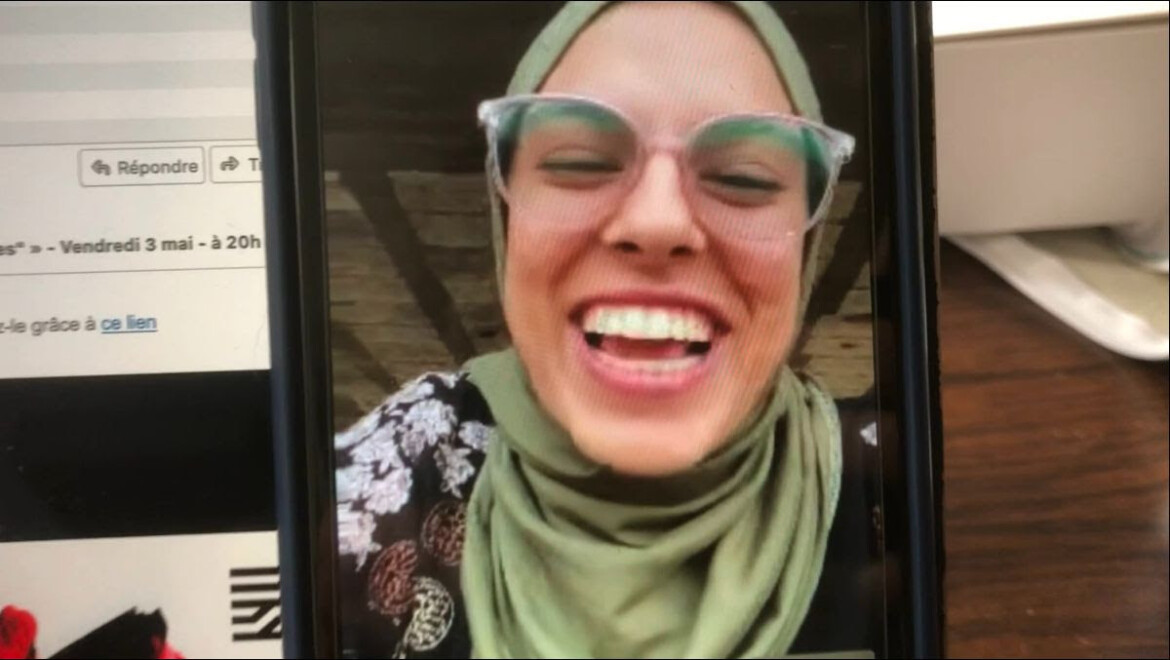Interview
Sepideh Farsi: ‘Fatima Hassouna’s death was not an accident’
We spoke with the filmmaker Sepideh Farsi about her friend and photographer Fatima Hassouna, who was killed by Israel along with her family in Gaza. ‘The truth is that human rights are dead.’

“With a sunny disposition, full of energy and very brave. With a hint of naiveté due to her youth: she would have been 25 in a month”: this is how Sepideh Farsi, an Iranian diaspora filmmaker active since the 1990s, describes Fatima Hassouna, the photojournalist killed in Gaza last week along with seven members of her family. An Israeli airstrike hit her home in eastern Gaza City.
Farsi got to know the young woman well: she recorded their video calls for a year, and the suffering and excitement of these two women from the Middle East came together in the shape of the film Put Your Soul on Your Hand and Walk.
“She was my eyes on Gaza,” Farsi says. The day before Hassouna's death, it had been announced that the film would have its world premiere at Cannes, as part of the ACID independent filmmakers' section.
“We had taken all the steps so that Fatima could be present at the premiere. She was overjoyed. But she was determined to return to Gaza immediately afterwards. She told me, ‘What the Israeli occupation wants is for us to leave our lands. We have to stay,’” says Farsi, who agreed to speak with il manifesto via telephone at a time of great sorrow.
How did you meet Fatima Hassouna?
I met her because I was looking for a connection to Gaza, to someone who could tell me what was happening there. I was in Cairo, where I was in contact with a Palestinian refugee family. Between March and April last year there was a time when they were able to cross the border, before the total blockade of Rafah. The first time I saw Fatima, on a Zoom video call, I felt a fascination towards her, which I think was mutual, and we decided to bring the film to life based on our conversations.
What did you talk about?
About her daily ordeal: a year ago, Gaza was already in a famine situation. Very little food had been available for months. She was answering my questions, she talked about her relationship with images as a photographer, her relationship with Palestinian identity and faith, something we didn’t share but I could understand, I was also a believer when I was young. What resulted was a kind of mirror between myself, Iran, my exile, and her, 20 years old, in Gaza. We could identify with each other. We talked about the obligation to wear the veil, about politics. She didn’t know much about dissidence; Fatima grew up in between wars.
Was she aware of the risk that she would die like this?
I still can't believe that she died. I talk about it, but I haven’t processed it. Every day I thought, what happens if they attack her? We also talk about it in the film, where she says, “We have to win because we have nothing to lose.” A strong statement, even a violent one, which she says with a smile. And about the end, she had written some time ago that she wanted hers to make noise. She didn’t want to be just a number in a newspaper article. Now, I don't know if she saw death as a distant abstraction or on the contrary, if she had internalized it since childhood. I lost several friends in Iran, imprisoned, tortured and killed, but it’s as if the awareness of death contains something antithetical to youth, which is so full of life.
What do you think of the silence about Palestine that is still pervasive in Europe? There was practically no mention of Gaza at Cannes last year.
It is an unacceptable silence, a terrible hypocrisy for Europe. When I came here, people would say “never again.” But now, people go on with double standards. The truth is that human rights are dead. It's easy to say you believe in those universal values, but if you then do nothing to defend them, if it’s a problem to say that a genocide is a genocide... You have to be on the right side of history at the right moment, not afterwards. The extremist movements were born in the Middle East because people were oppressed and nobody did anything for them. Israel didn’t do anything to stop the expansion of Hamas either. And now we, in civil society, have to live with this: making films, going into the streets to protest, these are important things, but it is not enough for things to change.
Fatima Hassouna is the latest of more than 200 journalists and reporters killed in the war in Gaza. Was she specifically targeted?
Yes, absolutely, I am sure her death was not an accident. She was a gifted and serious photojournalist who documented the genocide with her photos: fortunately, they are still there to witness it. As usual, they’re claiming Hamas members were hiding in that house. I know for a fact that this is nonsense.
You were talking earlier about the points of contact between your story and Fatima's. How do you see Iran today?
We have lived through this magnificent season of the Woman Life Freedom movement, where genders, ages and ethnicities have come together. The Iranian regime is dying and that is why they are negotiating with Trump, going against everything they’ve been saying for years. The instrument they are using to stay alive is vicious repression. I am sad, but at the same time optimistic: I don't think they will be in power much longer. I hope that whatever comes next will not be “stolen” from us once again, as in 1979; we want to see the amazing Iranian women leading a democratic country.
Originally published at https://ilmanifesto.it/sepideh-farsi-fatima-hassouna-uccisa-di-proposito-leuropa-e-ipocrita on 2025-04-18
